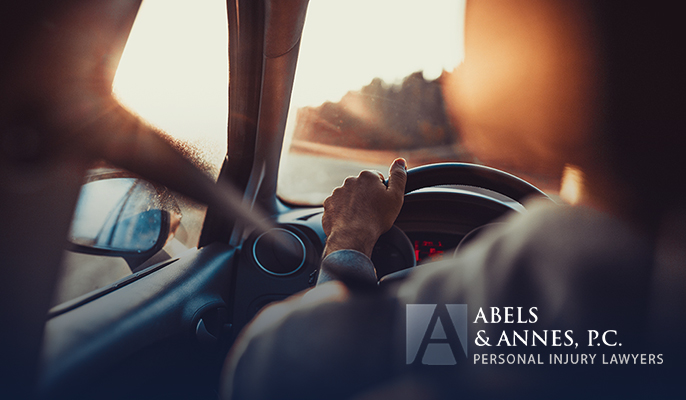Unlike drivers and passengers in an enclosed motor vehicle, motorcycle riders have very little protection between themselves and the ground. If another car hits a motorcycle and dislodges the rider from their vehicle, the rider may suffer debilitating injuries that leave them with high medical bills and other significant consequences. Motorcycle crash victims might not return to work after their accident, causing them to experience severe personal financial strain and mounting expenses.
Fortunately, victims of serious motorcycle accidents may be eligible to recover compensation, not just for their medical expenses and lost income, but also for their past and future pain and suffering. Victims can receive monetary damages for both their physical pain and suffering and their mental pain and suffering.
If you suffered injuries in a motorcycle accident that was not your fault, you should talk with a knowledgeable motorcycle accident attorney who can assist you with every stage of your claim or lawsuit.
Your lawyer can help you file a personal injury claim with the responsible party’s insurance company and negotiate fair settlement offers from adjusters handling your case. If the adjuster refuses to provide sufficient monetary damages for your pain, suffering, and other losses, your attorney can file a lawsuit in the court system and pursue the compensation you deserve.
Schedule a Free Initial Consultation
Potential Motorcycle Accident Causes

Motorcycle accidents can happen for various reasons but usually result from negligent and reckless driving maneuvers. Drivers have a duty to drive carefully at all times, looking out for motorcycles, pedestrians, and other vehicles on the road. When motorcycle riders fail to obey traffic laws or otherwise drive negligently and carelessly, they may cause an accident that causes a cyclist to suffer both physical and mental injuries.
Excessive speeding is one common cause of motorcycle accidents. Whenever a driver exceeds the speed limit, they may lose control over their vehicle more quickly, particularly if they speed during inclement weather conditions. A driver who speeds may be unable to react to an emergency roadway situation, causing a chain-reaction collision that injures multiple drivers and passengers.
Another common cause of motorcycle accidents is failing to yield the right-of-way when it is appropriate to do so. For example, a driver may negligently cause the front of their vehicle to hit the side of a motorcycle in a classic T-bone or broadside collision. As a result, the motorcycle may overturn, and the cyclist may fall to the ground, suffering severe injuries.
Motorcycle accidents are also common when drivers exhibit severe road rage or react inappropriately to a roadway situation. Some drivers show road rage when they tailgate motorcyclists, try to steer around them in heavy traffic, or fail to use a turn signal when executing a turn or switching lanes on a busy highway. When drivers are in a hurry, they are less likely to react to abrupt traffic situations that arise in time, frequently causing traffic accidents.
Next, some motorcycle accidents result from distracted or inattentive driving. Drivers must always observe the road, keep their focus on the road, and use their rearview and side view mirrors. However, while driving, many drivers become distracted when they look at cellular devices, including tablets and phones. Drivers may also become distracted if they try to program a GPS navigation system while operating their vehicle at the same time. Finally, a driver may become distracted by young children sitting in the backseat or loud music playing in their car.
Many vehicle distractions will cause a driver to look down or turn their head away from the road. However, these actions may prevent a driver from seeing an approaching motorcyclist and causing a severe accident.
Likewise, some motorcycle crashes result from drugged or intoxicated driving. For example, a driver may sustain a guilty finding for driving under the influence, or DUI, if they have a blood alcohol concentration (BAC) of 0.08 percent or greater. Drivers who are legally intoxicated cannot drive carefully or safely since alcohol is a depressant and slows down the central nervous system’s ability to function. A drunk driver may be unable to focus on the road or react in time to avoid a severe motorcycle crash.
Finally, some motorcycle accidents do not result from the negligence of other drivers. Instead, they happen because of defective roadway conditions, such as grooved pavement at construction sites, uneven pavement, cracks in the macadam, and deep potholes. When a motorcycle rider speeds over any of these roadway defects, the rider may quickly lose control and fall to the ground, suffering a severe injury in the process.
If you or someone you care about suffered injuries in a motorcycle crash resulting from another party’s negligence, a skilled motorcycle accident attorney can review your options and help you move forward with a case. Your lawyer can also help you pursue the fair compensation you deserve, including monetary damages for both your physical and mental pain and suffering.
Physical and Mental Trauma in a Motorcycle Crash
Motorcyclists who fall to the ground in an accident often experience permanent and debilitating injuries. When an accident victim sustains a permanent injury in their crash, they may endure painful symptoms for the rest of their life. In addition, motorcycle accident victims may need to seek ongoing medical treatment for many weeks or months following their crash.
Since every motorcycle accident scenario differs, not all accident victims will suffer the same bodily injuries. In addition to physical injuries, accident victims may suffer extreme trauma and mental impairment due to their accidents.
Physical injuries that motorcycle crash victims may experience include:
- Traumatic head and brain injuries, including concussions
- Spinal cord injuries
- Complete or incomplete paralysis injuries
- Bone fractures
- Rib fractures
- Soft tissue injuries
- Road rash injuries
In addition to these physical injuries, accident victims may suffer severe mental impairments as a direct result of their motorcycle crashes. For example, an accident victim may experience extreme emotional distress and mental anguish following their accident or suffer from post-traumatic stress disorder, or PTSD.
A motorcycle rider who suffers from PTSD symptoms may have difficulty sleeping or may suffer from ongoing anxiety or depression. In addition, a PTSD sufferer may be wary about operating a motorcycle in the future or visiting the scene where the accident occurred.
If you sustained any of these complications in a recent motorcycle crash, you should go to a hospital emergency room right away so that a medical doctor can formally diagnose you.
If you have a family doctor—or primary care physician (PCP)—you should consult with them as quickly as possible after your accident. A PCP can make the necessary referrals, such as to an orthopedic doctor, neurologist, psychologist, or psychiatrist, for ongoing treatment. Your PCP or specialist can recommend a physical therapist who can help you fully recover from your physical injuries.
In addition to seeking prompt medical treatment after your accident, you should consult a motorcycle crash attorney in your area as quickly as possible. Your lawyer can begin gathering the necessary claim documents while you focus on attending medical appointments and getting better. Once your medical treatment ends, your lawyer can help you submit a settlement demand package to the insurance adjuster handling your claim.
Types of Motorcycle Crashes that Frequently Happen
When people drive negligently and carelessly, and municipalities and construction companies allow roadway defects to exist, serious motorcycle accidents may happen.
Some of the most common types of motorcycle crashes include:
- Motorcycle overturn accidents, where a motorcycle fully or partially overturns on the road upon impact.
- Sideswipe accidents, where the side of another vehicle hits the side of a motorcycle that is traveling in the same direction
- Head-on collisions, where the front of one vehicle strikes the front of an oncoming motorcycle
- Rear-end or tailgate accidents, where the front of one vehicle hits the rear tire or back of a motorcycle.
- Broadside or T-bone collisions, where the front of one vehicle strikes the side of an approaching motorcycle, usually at a traffic intersection
If you sustained injuries in one of these motorcycle accidents, retain skilled legal counsel to represent you in your case as quickly as possible. As soon as your attorney enters their appearance, they can begin advocating for you by assembling documentation and preparing your case for ongoing settlement discussions with the insurance company.
Compensation for Past/Future Physical Pain and Suffering
Following a severe motorcycle accident, the victim may suffer debilitating physical injuries, some of which are permanent. In addition to recovering economic damages for their related medical expenses, lost income, or loss of earning capacity, motorcycle crash victims may recover monetary damages for their past physical pain and suffering. These damages compensate accident victims for the pain, suffering, inconvenience, loss of movement, or loss of use of a body part that they experience between their accident date and the current date.
On the other hand, future pain and suffering damages compensate accident victims for those same losses going forward. Accident victims who suffer permanent injuries may be eligible to recover compensation for their anticipated pain and suffering.
The monetary compensation that an accident victim will receive for their physical pain and suffering will depend upon many factors, including the specific injuries they suffered in their accident and whether or not those injuries are permanent. Other factors may include the particular circumstances surrounding their accident, the medical treatment they previously underwent, and what they may have to endure in the days or weeks that follow.
Since every motorcycle accident case is unique, there is no such thing as an average settlement for pain and suffering.
Compensation for Past/Future Emotional Pain and Suffering
In addition to compensation for physical pain and suffering, accident victims can also receive monetary damages for their emotional anguish, pain, suffering, and inconvenience—both past and future.
To prove eligibility for these damages, the accident victim must regularly seek treatment with a counselor, psychologist, psychiatrist, or other mental health professionals. One of those professionals must have also diagnosed the accident victim’s condition and causally related it to the subject motorcycle accident.
As with potential monetary compensation for physical pain and suffering, monetary damages for emotional distress are highly case-specific and will depend upon similar accident-related factors.
Who Decides Monetary Damages in a Motorcycle Accident Case?
Most motorcycle accident claims and lawsuits settle at some point during the proceedings. Most parties do not want to incur the significant time, expense, and hassle of taking their case to a civil jury trial. However, if the parties do take their case to trial, a jury will decide the outcome.
This means that the jury will decide all issues in dispute, including the issue of monetary compensation and damages for pain and suffering. At a jury trial, the jury will determine what, if any, compensation to specifically award the accident victim for their physical or emotional pain and suffering.
The parties may wish to take their case to a binding arbitration proceeding as an alternative to a jury trial. At one of these proceedings, the parties will pre-select a neutral arbitrator to hear the case out of court.
The parties will then meet and present evidence to the arbitrator, including copies of the accident victim’s medical records, medical bills, and lost income documentation. After reviewing all of the evidence in the case and listening to witness testimony, the arbitrator will decide what, if any, pain and suffering damages to award the motorcycle accident victim.
Your lawyer can help you introduce the appropriate evidence in your case to maximize the monetary damages you receive for your accident-related pain, suffering, and inconvenience.
Call a Motorcycle Accident Attorney Today

You are not alone if you suffered injuries in a recent motorcycle accident. In addition to recovering monetary damages for your medical expenses and other tangible losses, you can receive monetary compensation for both your past and future pain and suffering.
Recovering these damages is not easy, as insurance companies and their adjusters are often skeptical. Adjusters will do everything possible to limit your monetary payout for your injuries, inconvenience, pain, and suffering. Therefore, an experienced personal injury attorney must effectively advocate for your legal interests and help you maximize your pain and suffering damages.
A personal injury lawyer can also be helpful when it comes to complying with the state statute of limitations. Accident victims only have two years to file a lawsuit for motorcycle accident injuries. Otherwise, the court will cut them off and prevent them from recovering any monetary damages.
In addition to filing a timely claim or lawsuit in your case, your lawyer will be your advocate at every stage of the proceedings. In addition to negotiating with insurance company representatives, your lawyer can litigate the case for you and aggressively represent you in all legal proceedings.


